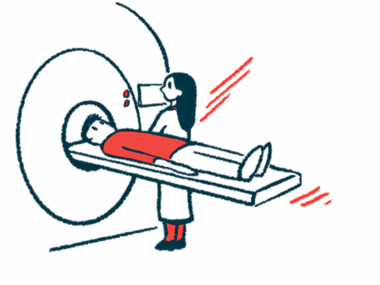The Rise of Superbugs, Antibiotic Resistance, and MS
Written by |

I am living with an unenviable reality. An antibiotic-resistant, hospital-acquired infection that I developed two decades ago has reappeared. Before my multiple sclerosis diagnosis, I had a spinal cord stimulator implanted for pain control. Although the stimulator was removed shortly afterward, the infection remained.
This infection presents itself when I am run-down or stressed. I develop cyst-like growths on my forehead and chin. While they are generally clear, they have the potential to become irritated and angry. Steroid creams alleviate the discomfort. I have yet to find an antibiotic to heal the infection itself. But I have learned to manage the symptoms. I am cautious about taking any antibiotic medications as I know that despite medical necessity, they build a tolerance. I find this to be incredibly disconcerting as someday my life may depend on the efficacy of an antibiotic.
But will a sufficiently strong one exist then? It’s a question without an answer.
As an autoimmune disease, multiple sclerosis leaves us vulnerable to infection. Nevertheless, this is an epidemic without exclusion. I recently read a news alert from the World Health Organization concerning the lack of funding and innovation in the development of new antibiotics.
Current antibiotics are no match for the growing number of superbugs, and without newer, stronger antibiotics, superbugs will continue to dominate. While bugs prey on hosts with compromised immune systems, superbugs are potentially life-threatening. Some bacteria are almost impossible to treat with existing antibiotics. Overuse is a significant contributor to this conundrum.
My disease-modifying therapy, rituximab, is an immunosuppressant medication, which means it suppresses my already weakened immunity, leaving me particularly vulnerable to developing an infection. This could be from a common illness such as a cold, urinary tract infection, or kidney infection. These infections are not only harder to treat but also tougher on my body. Something that is innocuous to a healthy individual has the potential to take me down.
I take every precaution possible and encourage you to do the same. These precautions include proper medicinal habits when given the occasional antibiotic. I take them exactly as prescribed. I take the full dose, even if I feel better long before the course is finished. I do not take them without a prescription. Above all, I listen to my physician.
Antibiotics have changed since the discovery of penicillin in the 1920s. Who could have imagined before the development of antibiotics that a common mold would save millions of lives? But one century later, we need another lifesaver. It could be an antibiotic to destroy superbugs or medication to strengthen immunity.
One important question remains: Who will save us from ourselves?
***
Note: Multiple Sclerosis News Today is strictly a news and information website about the disease. It does not provide medical advice, diagnosis, or treatment. This content is not intended to be a substitute for professional medical advice, diagnosis, or treatment. Always seek the advice of your physician or other qualified health provider with any questions you may have regarding a medical condition. Never disregard professional medical advice or delay in seeking it because of something you have read on this website. The opinions expressed in this column are not those of Multiple Sclerosis News Today or its parent company, Bionews Services, and are intended to spark discussion about issues pertaining to multiple sclerosis.






Tim
Wow! this article leaves me feeling pretty dismal. Why? Well, because antibiotics are long suspected to disrupt the gut microbe which very well may be a potential cause of MS! Antibiotics are well known to wipe out many helpful bacteria in the gut. I have heard accounts of patients developing MS after a super strong dose of antibiotics (I urge you to research this yourself). And so, my wife (who has been diagnosed with Ms for over 21 years), has to take a drug that will make her more vulnerable to infection, but yet the antibiotic (which may not even be effective) she may need to fight the infection, could very well worsen her MS! Wow! I think we are in some ways clueless about autoimmune diseases. What is causing the inflammation response that activates the immune system against itself in the first place? Shouldn't that be where we start? All DMTs only treat the symptoms, and just like cold medicines, there will soon be dozens and dozens (there already are). And while the waiting rooms are filled with drug reps and their briefcases, MS patients can't even sit up straight! No, I'm not bitter. I'm worried that my wife is going to go to appointment after appointment in a depressing hospital room with fluorescent lights and paper over the bed, while it would probably benefit her more to be working outside on an organic farm in the sunshine eating healthy and getting exercise! But, hey what do I know, right?
Chris
I take exception to OP's comments on those with MS having weakened autoimmune systems et all. On the contrary I mind. Actually our immune systems are heightened actually and it is a well known fact that people with MS develop less colds and flus than those who are not suffering from this disorder. The fact is the most DMT's are guilty of lowering your immune system. So relax people and carry on..
Jennifer (Jenn) Powell
Thank you so much for adding to the conversation, Chris.
Warmly,
Jenn